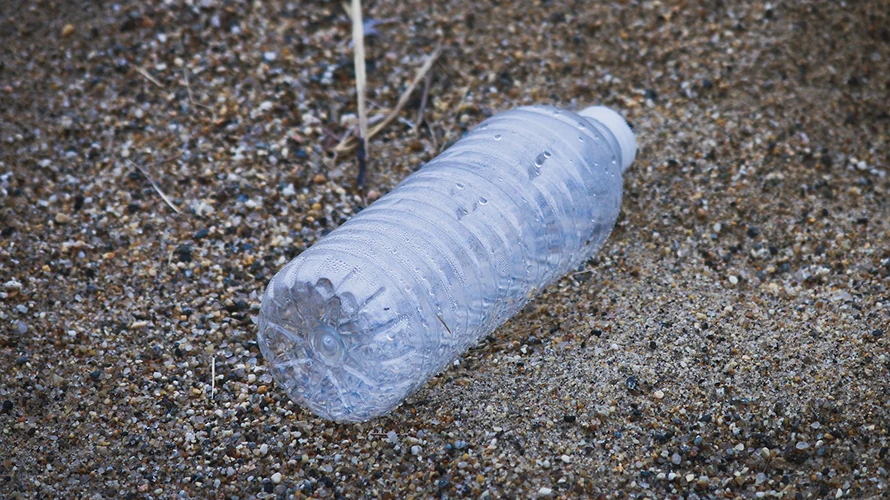A quick overview of the topics covered in this article.
Subscribe to the UKPACK newsletter to receive regular updates on the company, products, services, upcoming exhibitions and more.
Have you ever heard of PCR plastic? If you’re interested in sustainability and eco-friendly materials, this type of plastic is definitely worth learning about. PCR stands for “post-consumer recycled,” meaning it’s made from plastic waste that has already been used and recycled. Using PCR plastic instead of virgin plastic can significantly reduce the amount of plastic waste produced and help conserve natural resources.
In this guide, we’ll dive into what PCR plastic is, how it’s made, its applications, its benefits, and drawbacks. Whether you’re an environmentally conscious consumer or a business looking to adopt more sustainable practices, understanding PCR plastic can help you make informed choices and reduce your environmental impact.
What is PCR Plastic?
PCR plastic stands for Post-Consumer Recycled plastic. It is a type of plastic made from recycled materials that have already been used by consumers. The recycled materials can come from a variety of sources, such as water bottles, food containers, and packaging.
In addition, it is commonly referred to as rPET (Recycled Polyethylene Terephthalate), rPP (Recycled Polypropylene Plastic), and rHDPE (Recycled High-Density Polyethylene).
How is PCR Plastic Made?
PCR plastic is made through a process of recycling used plastic materials. The recycling process begins by collecting post-consumer plastic waste, such as plastic bottles and containers, from households and commercial facilities. The collected waste is then sorted, cleaned, and shredded into small pieces.
The next step is to melt and reform the shredded plastic into pellets or flakes, which can be used as raw material to manufacture new products. The pellets or flakes can be melted down and molded into a wide range of plastic products, such as food containers, packaging materials, clothing, and textiles.
The Applications of PCR Plastics
PCR plastic has numerous applications in various industries due to its eco-friendly nature and comparable performance to virgin plastic. Some of the common applications of PCR plastics include:
- Packaging: PCR plastics are widely used in the packaging industry for producing a variety of products, such as bottles, containers, bags, and films.
- Textiles: PCR plastics are used in the production of clothing and fabrics, including jackets, fleece, and other outdoor gear.
- Construction: PCR plastics are used in construction for producing various products like roofing materials, decking, and pipes.
- Automotive: PCR plastics are used in automotive applications, such as interior parts, bumpers, and under-the-hood components.
- Electronics: PCR plastics are used in the production of various electronic devices, such as laptop cases, mobile phone cases, and accessories.
These are just a few examples of the many applications of PCR plastic. With the increasing awareness of environmental issues and the need for sustainability, the demand for PCR plastics is expected to increase in the future, leading to the development of more applications in various industries.
What are The Benefits of PCR plastics?
One of the most significant benefits of PCR plastic is that it helps to reduce waste and decrease the amount of plastic going to landfills. By reusing plastic waste, we can reduce the need for new plastic production and lower the environmental impact of the manufacturing industry. Additionally, PCR plastic requires less energy to produce compared to new plastic, which means fewer greenhouse gas emissions.
Another benefit of PCR plastic is that it can be used in a wide variety of applications, from clothing to packaging to toys. This versatility means that it has the potential to replace traditional plastic in many applications, reducing the need for new plastic production even further.
What are The Drawbacks of PCR plastics?
While there are many benefits to using PCR plastic, there are also some drawbacks to consider. One is that PCR plastic can have a lower quality and durability than new plastic. This means that products made from PCR plastic may not last as long as those made from new plastic.
Another drawback of PCR plastic is that it can be more expensive to produce. This is because of the additional processing and cleaning required to turn plastic waste into new products. However, as demand for PCR plastic increases, this cost may decrease over time.
Can PCR Plastic Be Recycled?
Yes, PCR plastics can be recycled. And their production is primarily aimed at addressing the growing issue of plastic waste. The use of recycled plastics in manufacturing new items significantly minimizes the quantity of plastic waste that accumulates in landfills and the surroundings, which otherwise could lead to severe environmental consequences.
Is PCR Plastic Biodegradable?
No, PCR plastic is not biodegradable. While it is made from recycled materials, it is still a type of plastic and does not break down naturally in the environment. However, using PCR plastics can help reduce the amount of new plastic being produced and therefore the amount of plastic waste that ends up in landfills and the environment. It is important to properly recycle PCR plastics to ensure they can be reused and prevent them from contributing to pollution.
Our PCR Plastic Packaging Solutions
We offer a wide range of cosmetic packaging solutions made from PCR plastic. These solutions include:
- PCR plastic jars: Our PCR plastic jars are perfect for a range of cosmetic products, including creams, gels, and powders. They are available in a range of sizes and styles to suit your specific requirements.
- PCR plastic bottles: Our PCR plastic bottles are ideal for a range of liquid cosmetic products, including shampoos, conditioners, and lotions. They come in a variety of sizes and styles, including airless pump bottles, spray bottles, pump bottles, and dropper bottles.
At UKPACK, we are committed to providing sustainable and environmentally-friendly packaging solutions for our customers. Our PCR plastic packaging solutions for cosmetic packaging are an ideal choice for companies looking to reduce their environmental impact while still delivering high-quality packaging solutions.
Contact us today to learn more about our PCR plastic packaging solutions.

Lucas Ji, Founder of UKPACK and Chief Packaging Designer, has 15 years of experience designing sustainable packaging for global beauty and beverage brands. His Red Dot Award-winning solutions have helped 50+ premium brands transition to eco-friendly packaging.

